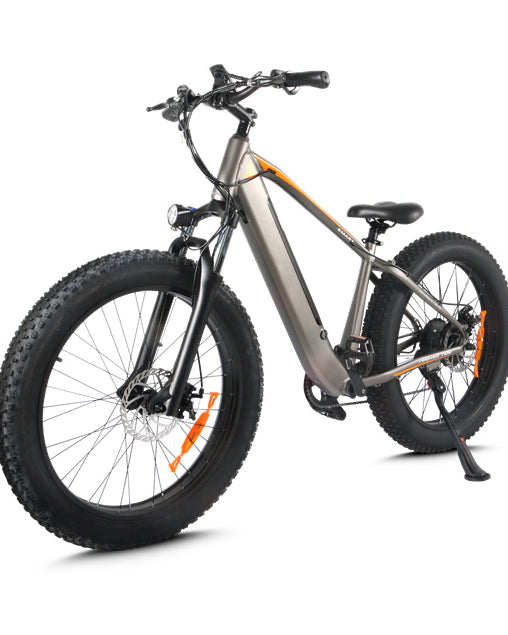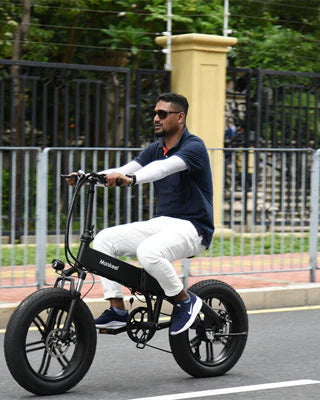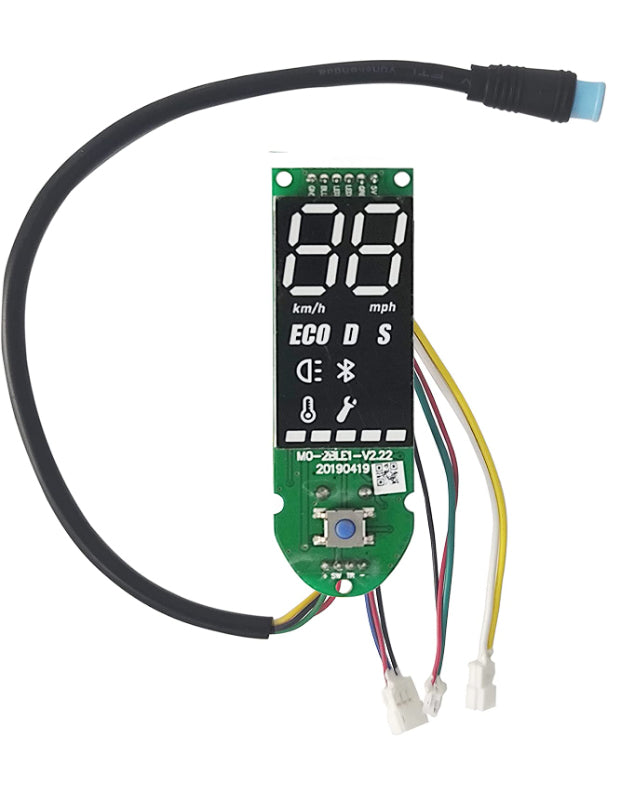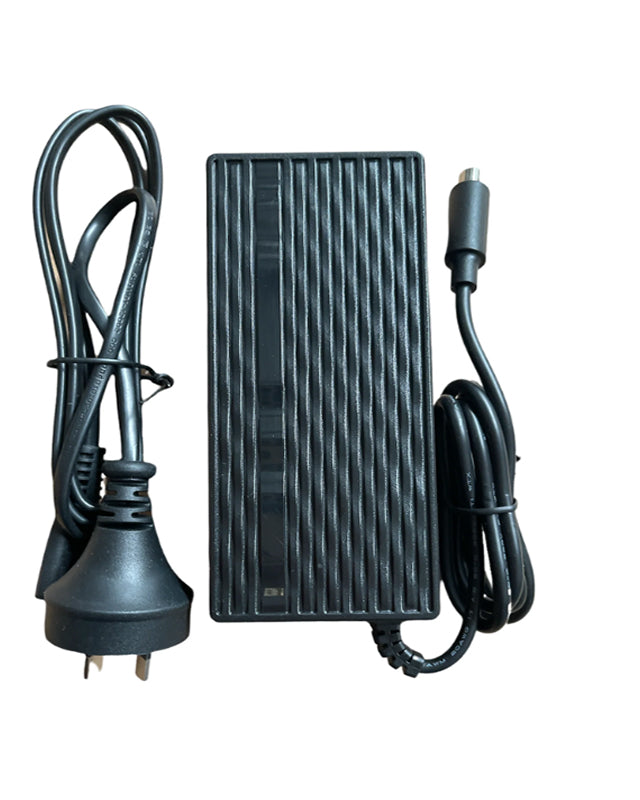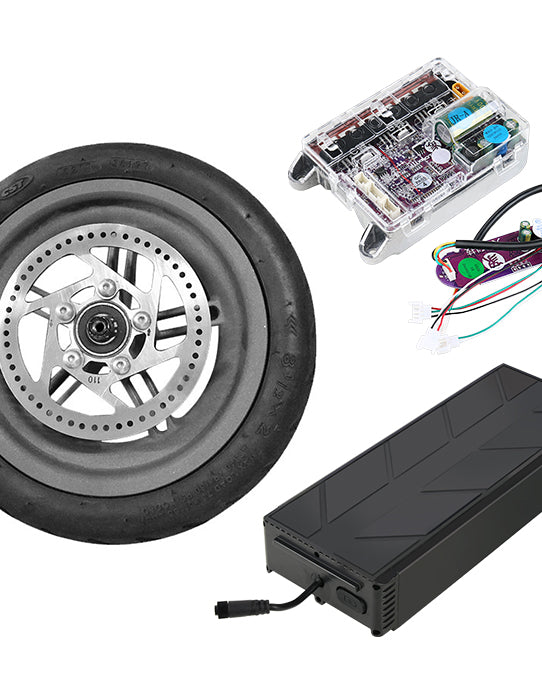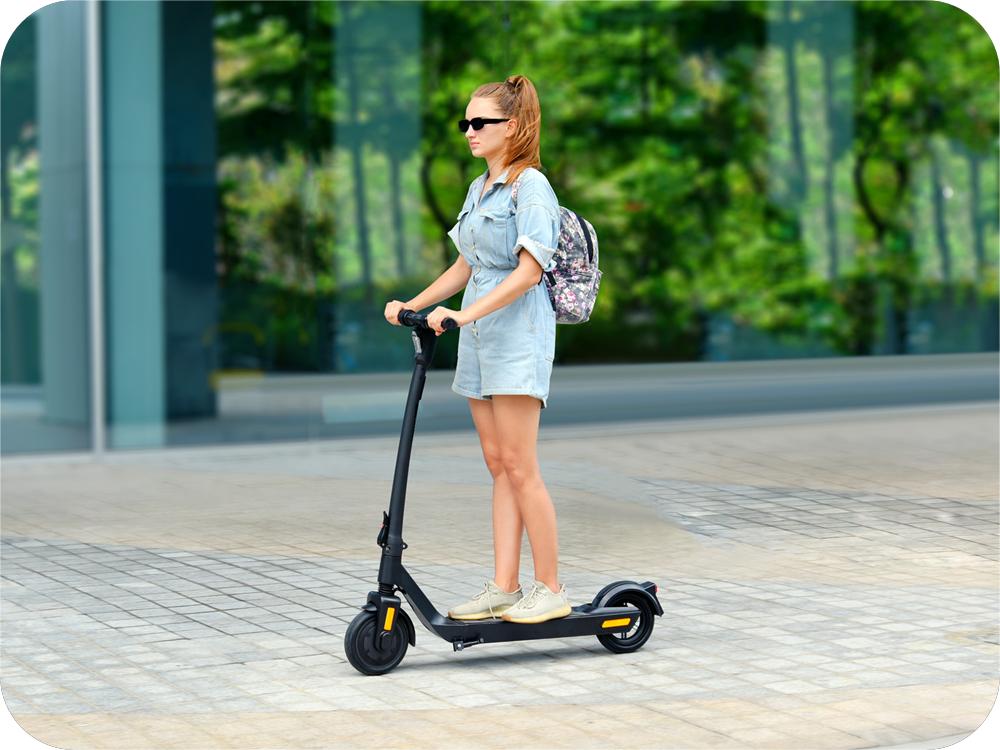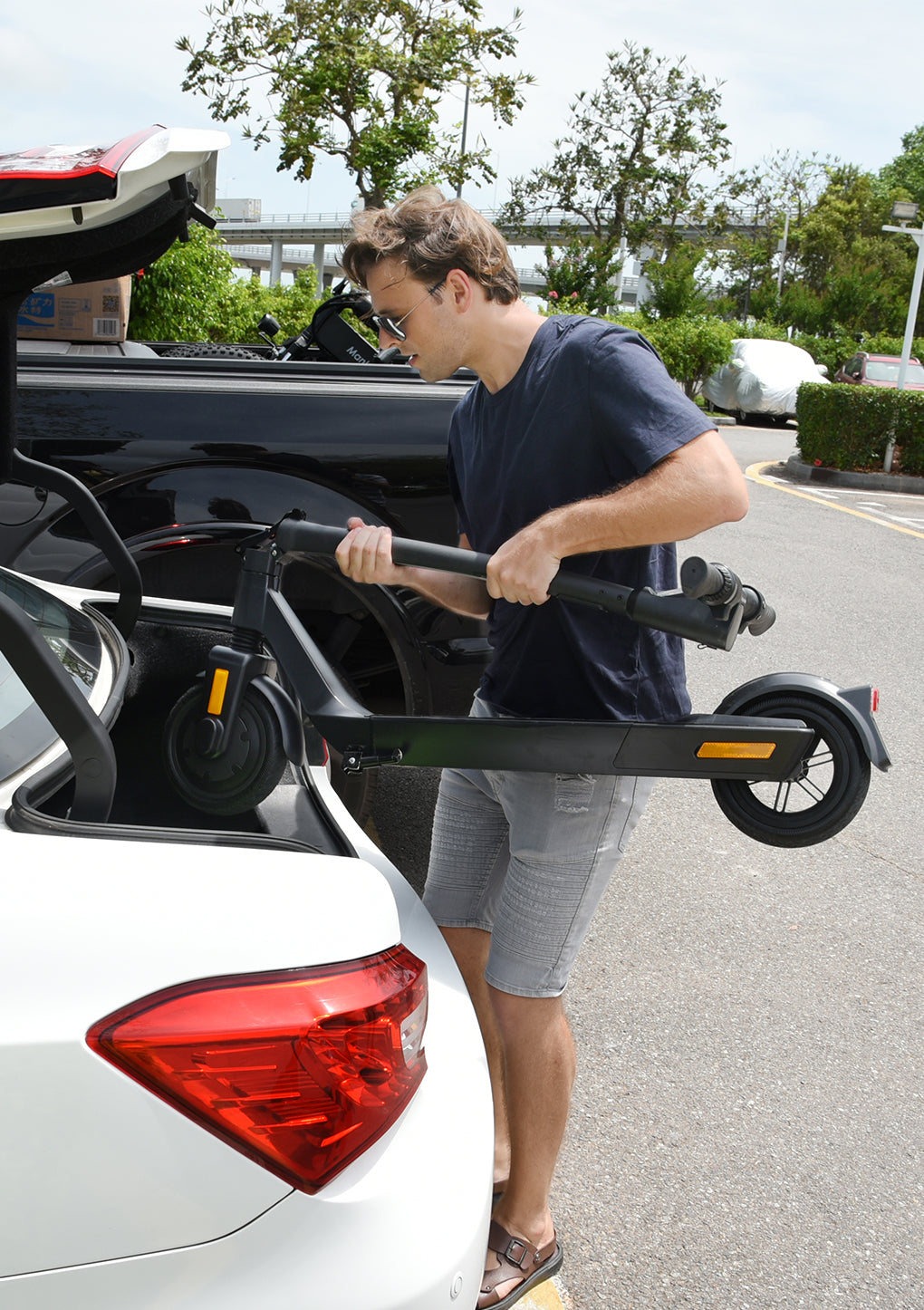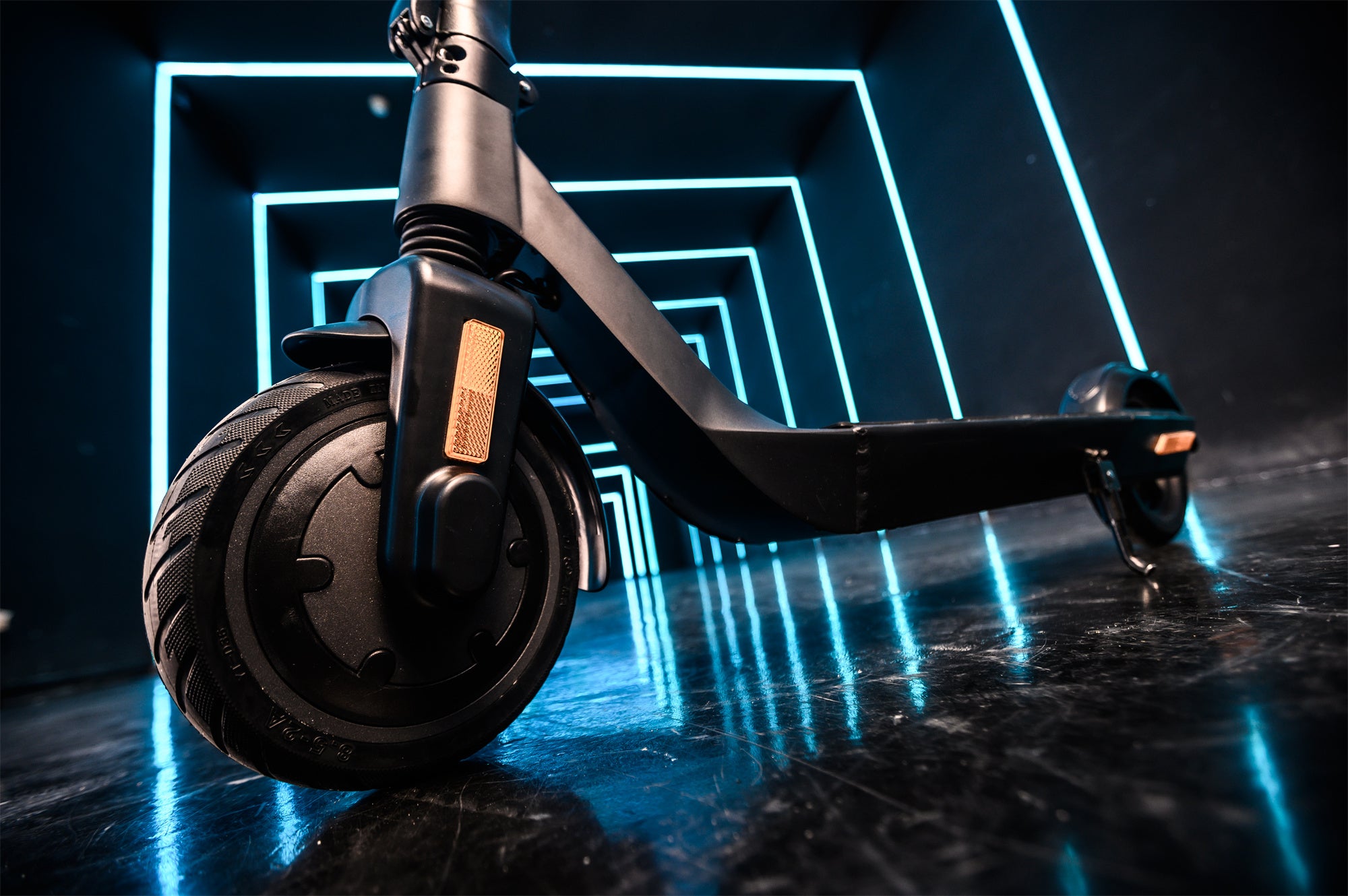UK law explains whether the electric scooter is legal
The good news: It is legal to buy electric scooters in the UK. The bad news: It is not yet legal to ride your own electric scooter on public roads. Better news: this could change soon, starting with the current right to ride a rental electric scooter.
Private electric scooter: the law today - October 2022
Technically, an electric scooter is a motorised two-wheeled vehicle or Personal Light Electric Vehicle (PLEV). They differ from electric bikes not only in that they have no pedals but also in that they are classified as motor vehicles under road traffic laws.
Why are electric scooters illegal?
Because e-scooters do not (usually) comply with road traffic laws – in particular, they do not have rear lights or registration – it is not legal to use a privately owned scooter on UK roads.
Therefore, you often hear that they are only allowed on private land (and even then, only with the permission of the property owner).
Rented scooters: the law today - November 2002
The government is currently conducting trials in 31 regions where the use of rental scooters is legal on public roads (except motorways) and on cycle lanes (but not on pavements).
As part of the trial, the rental company takes care of insurance. Users still need a valid driver’s license (full or provisional – classes AM, A1, A2, A and B) and can then ride the electric scooters on roads and cycle lanes (note: not on pavements). Helmets are recommended but not compulsory.
You must use them safely and carefully. Do not use cell phones while riding, avoid bags on the handlebars, and do not drink while riding.
The trials were originally scheduled to end Nov. 30, 2021, but were extended because of the pandemic. They were then extended a second time and are now scheduled to end on Nov. 30, 2022. Local agencies already participating now have the option to either end their local trial or extend it to May 31, 2024.
Participating scooter rental agencies include TIER, Lime, Voi and Dott.
Even in these trial areas, it is not yet possible to use a private escooter on the street.
Electric scooter trial areas in 2022 and 2024
The current trial areas which have announced plans to extend to 2024:
- Bournemouth and Poole
- Buckinghamshire (Aylesbury, High Wycombe and Princes Risborough)
- Cambridge
- Liverpool
- Milton Keynes
- Norwich
- Portsmouth
- Slough
- South Somerset (Yeovil)
- Sunderland
- West Midlands (Birmingham, Coventry and Sandwell)
Areas that have not yet announced (as of mid October) if they will extend:
- Cheshire West and Chester
- Copeland (Whitehaven)
- Derby
- Essex (Basildon, Braintree, Brentwood, Chelmsford and Colchester)
- Gloucestershire (Cheltenham and Gloucester)
- Great Yarmouth
- London (participating boroughs)
- Newcastle
- North and West Northamptonshire (Northampton, Kettering, Corby and Wellingborough)
- North Devon (Barnstaple)
- North Lincolnshire (Scunthorpe)
- Nottingham
- Oxfordshire (Oxford)
- Redditch
- Salford
- Solent (Isle of Wight and Southampton)
- Somerset West (Taunton and Minehead)
- Tees Valley (Hartlepool and Middlesbrough)
- West of England Combined Authority (Bristol and Bath)
- York
Currently only one area is definitely stopping the trial
- Kent (Canterbury) – on safety grounds
Private motor scooters - future change in law
The government is considering the legalization of electric scooters. The main questions are:
Should they be treated like electric bikes?
What should be the maximum speed or power?
Is a handlebar mandatory?
Should e-scooters be allowed on bike paths?
What about braking distances, lighting, size, etc.?
Should users require registration, a driver’s license, or a certain age?
In a recent government consultation, the general view was that they should be treated legally like electric bikes. There was broad support for legalization and overwhelming opinion that clear regulations were needed.
Buy an adult electric scooter now.
Defining an electric scooter
These were the criteria used by the government in the legalization of rental escooters in the trials – this is a reasonable starting point for legalization (but could well be changed):
A single electric motor with a maximum continuous output of 500 W
No pedals to propel the scooter
Designed to carry only one person
Maximum speed of 15.5 km/h
2 wheels, 1 front and 1 rear, facing the direction of travel (i.e., no hoverboards!)
Weight less than 55 kg A mass including battery, but without driver
Directional control via a handlebar mechanically connected to the steered wheel
Ability to control the speed via hand controls and a power regulator that defaults to “off”.
Seats ARE allowed.
A white-front and rear red position lamp
When will electric scooters be legal in the UK?
Approved rental scooters in the 31 trial areas (a maximum of 30 from November 2022) are already allowed on public roads, provided one has a driver’s license. When private electric scooters will be legalized depends on the government, which has said it wants to pass the law in the current legislative session, before spring 2023. This was announced last month before Rishi Sunak became prime minister, and he has yet to commit.

